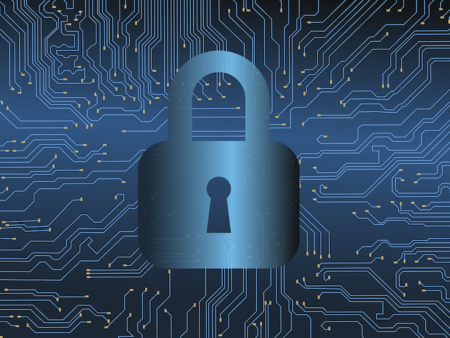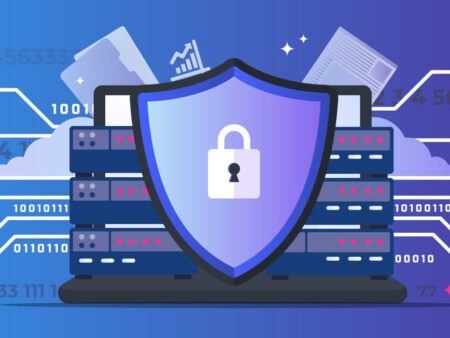As blockchain technology continues to mature, centralized exchanges are moving into the decentralized space. Binance launched a decentralized exchange in 2019 and Coinbase acquired P2P platform Paradex.One of th e most interesting uses for blockchain smart contracts is in wills, which are highly specific documents. Blockchain technology could simplify this process by providing verifiable transaction data and making it easier to identify facts. This could lead to the dismissal of claims that have little or no merit.
Data integrity is a key security property of blockchain technology
Among the most important security properties of blockchains, data integrity is a key consideration. This is because data integrity in blockchain applications means that the data is accurate, timely, and reliable for all participants. However, the data integrity of blockchains is not always guaranteed, and data on-chain may be compromised at many stages. For these reasons, data integrity analysis and management is an important pre-deployment step.
First, data integrity is an essential property of blockchain solutions. This term is used more broadly in the supply-chain context, where it refers to the resistance of data from unauthorized modification. Additionally, it refers to the accuracy and completeness of data throughout its lifetime. With this in mind, blockchains are an excellent choice for supply-chain applications. But how do they maintain this integrity? Listed below are some key considerations.
Data integrity is also a critical issue for government and business applications. For example, the implementation of blockchain technology in a large-scale procurement contract can make or break the winner of the contract. The stakes in such a contract are high and there is substantial incentive for vendors to collude with oracles to submit false performance metrics. Even if malicious faults are rare, they must be considered.
Data integrity is essential for clinical trials. A good clinical trial requires good security, proper content, and an immutable audit trail. Blockchain technology can ensure the quality of clinical trial data. Its immutable audit trail ensures data integrity, ensuring that data is secure and trustworthy. Further, it offers rich opportunities for transaction tracking and anonymity. Because blockchains are ledgers, every block is linked to the previous and succeeding blocks using cryptographic hash functions. Any changes in the data are logged as new transactions.
Smart contracts are a powerful application of blockchain technology
Smart contracts are a form of code that executes automatically once pre-defined conditions are met. They are digital and automated and can significantly improve supply chain management and reduce fraud and theft. Unlike traditional contracts, smart contracts do not require intermediaries or paperwork, reducing transaction costs. Smart contracts are also used for electronic elections. In addition to these applications, blockchain technology also makes it possible to implement blockchain-based applications in other sectors of society.
In business transactions, smart contracts automate document processing by avoiding the need for an intermediary. Since contracts are transparent, everyone involved in the transaction can view and edit them. Also, because contracts are automated, they avoid errors associated with manually processed forms. But smart contracts are not perfect. Like any other technology, smart contracts have their flaws. For example, government regulation and taxation could result in bugs in these software applications.
While smart contracts are powerful applications of blockchain technology, they are not suitable for all businesses. In addition to being costly to create, smart contracts require a high level of technical expertise. Not all blockchain platforms are compatible with smart contracts, so you need to be familiar with them. To create smart contracts, you should have a thorough understanding of blockchain and the programming language Solidity. Ethereum is a popular smart contract platform.
A smart contract is an automated agreement that runs on the blockchain. It contains rules that govern the execution of an agreement. The contract can include multiple conditions, and each smart contract can be programmed in a different language. Ethereum’s Solidity is one of the most popular languages used for this purpose. A smart contract can also automate a workflow. Essentially, a smart contract automates the workflow of an organization.
Cost-effectiveness
The cost-effectiveness of bitcoin mining is often an issue of debate. Bitcoin miners face both high upfront costs and ongoing electricity expenses. In fact, the average cost of electricity to operate a Bitcoin mining computer is the same as that of half a million PlayStation 3 devices. And while bitcoin mining may be a revolutionary new way to pay for prescription drugs, it is not always profitable. The problem lies in the fact that bitcoin mining hardware is expensive and electricity costs are unpredictable.
Tokenization
Tokenization is a process whereby a value is converted into a digital token that can be used in certain blockchain applications. Tokenization can be used to represent both tangible and intangible assets. In fact, anything can be tokenized. This way, those assets can be included in a larger asset market. Listed below are some examples of such use cases. Further, tokenization can be used to create a secure and reliable transaction record, and is an important tool for the decentralized transfer of value.
Tokens are programmable digital assets that represent financial assets, such as bitcoins. Besides their use in finance, tokens have many other applications outside of the financial sector. In addition to being a payment option for goods and services, they can also be used as a means of authentication in identity solutions. Moreover, blockchain-generated tokens can lower the barriers to creating new marketplaces for non-tokenized products and services.
Tokenization can also reduce the cost of investing by allowing investors to bypass market intermediaries. This allows for more efficient value transfer and reduces transaction costs. Tokenization can also make it possible to trade a fraction of an underlying asset, thus providing a broader investment base for people around the world. Further, crypto tokens can reduce the need for a middleman, which is beneficial for investors and companies alike.
In addition to reducing costs, blockchain can also facilitate a stablecoin, which can serve as a substitute for fiat currency. Many banks are already experimenting with blockchain technology, and are assessing the benefits. They are currently looking at creating their own tokenized central bank currency, which can lower costs for cross-border payments. If the cryptocurrency becomes more popular, more banks will likely adopt it. They can even create their own blockchain using this technology.
Drug production
There are many benefits of using the blockchain in drug production, and it is not only a convenient way to store clinical trial data, but also to automate tasks. For example, the blockchain can automatically track the shipments of a particular drug. It can also link a problematic drug back to its production batch, making the process of recalling a product simpler. This technology is gaining ground in other industries, including agriculture, the financial sector, and retail.
One of the benefits of blockchain in the drug production process is its increased efficiency. This new technology has many benefits, but has not yet been widely adopted by regulators. However, it is viewed as a disruptive technology in the digital transformation of the pharmaceutical industry. The blockchain offers greater transparency and security to economic transactions, and it will revolutionize the industry when it is accepted by regulators. Once it is widely used in pharma, the new technology will be used to move data from A to B in a fully automated manner.
In the pharmaceutical industry, the supply chain is complex. Today, two to three percent of all drugs are returned. The volume of these returns can amount to seven to 10 billion dollars. One of the biggest challenges for pharma companies is identifying and separating legitimate from counterfeit drugs. It is important for each drug to be serialized and barcoded, as in the EU and USA. Today, the process of drug authentication is handled by a centralized authority. The blockchain would facilitate a transparent process for ensuring the quality of a drug.
As the world moves towards personalized healthcare, the Blockchain can help in this effort. It is already used in cancer research and precision medicine. Because data can be easily traced, it is possible to improve the efficiency and effectiveness of clinical trials. With increased transparency and traceability, these trials will run more efficiently and cost-effectively. Another application of blockchain in medicine is in the drug supply chain. Blockchain-enabled health technology is already in operation in Mumbai, India, and has been used by patients for over four months.






